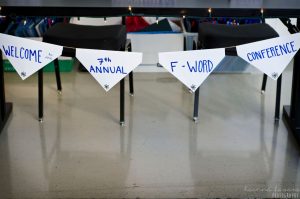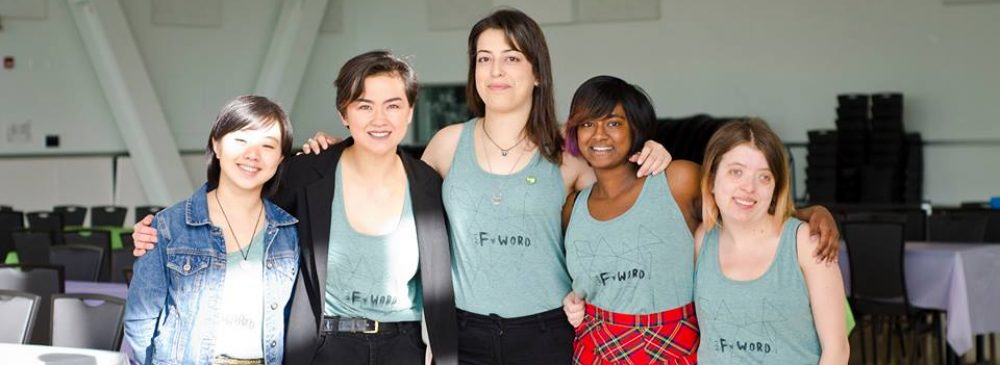
Photo credit: Leanna Favaro.
Introduction
“From Theory to Practice: Imagining Our Feminist Futures”
By Rashmi Abeysekera, Ghada Dbouba, and Kaymi Yoon-Maxwell
We are writing from the perspectives of three queer students of colour who were on the planning committee for the 2016 F-Word Conference, “From Theory to Practice: Imagining Our Feminist Futures”. The F-Word is an annual undergraduate student-led feminist conference organized by the Gender, Race, Sexuality, and Social Justice Undergraduate Student Association (GRSJUSA) at UBC, on the unceded lands of the Musqueam peoples.
Through this blog, we will focus on our experience of organizing the conference to more broadly speak to themes of student activism, decolonization, burnout, privilege, power, and what it means to organize within the university institution. In addition to drawing on outside sources, we will also draw on our own experiences as a resource. We conducted written-response interviews amongst ourselves and the two other committee members from 2016, Alison Watts-Grant and Mengxi Wang. Excerpts from these interviews will be used in our posts and the full interview script can be found under “Full Interview Transcript with 2016 Organizers”.
Our blog aims to confront the following questions:
- As students on a campus like UBC, how can organizers come to recognize and acknowledge their privilege and complicity within systems of oppression that are inherently present in the university institution?
- How can student organizers in settler-colonial states, such as so-called Canada, work towards decolonization? How can settler organizers work towards centering Indigenous voices and resistance without tokenizing Indigenous peoples?
- Who does the work of campus activism? How does this reflect broader trends of burnout in marginalized communities (including people of colour, queer people, women, trans* people, and Indigenous peoples)?
In line with the 2016 theme for the conference, the purpose of this blog is not only to provide a case study surrounding the F-Word as a site of student organizing, but also to create a space of reflexivity and a resource for future organizers of the F-Word, and student activists in general. Due to the nature of this conference and its organizing team changing annually, we hope that this blog can be a resource for future student organizers (of the F Word, but perhaps others as well!) to keep these questions in mind throughout the process. These questions inspire constant reflection and all require processes of navigating privilege and power, decolonial praxis, and taking care of ourselves. After all, part of “Imagining our Feminist Futures” is building from our pasts.
